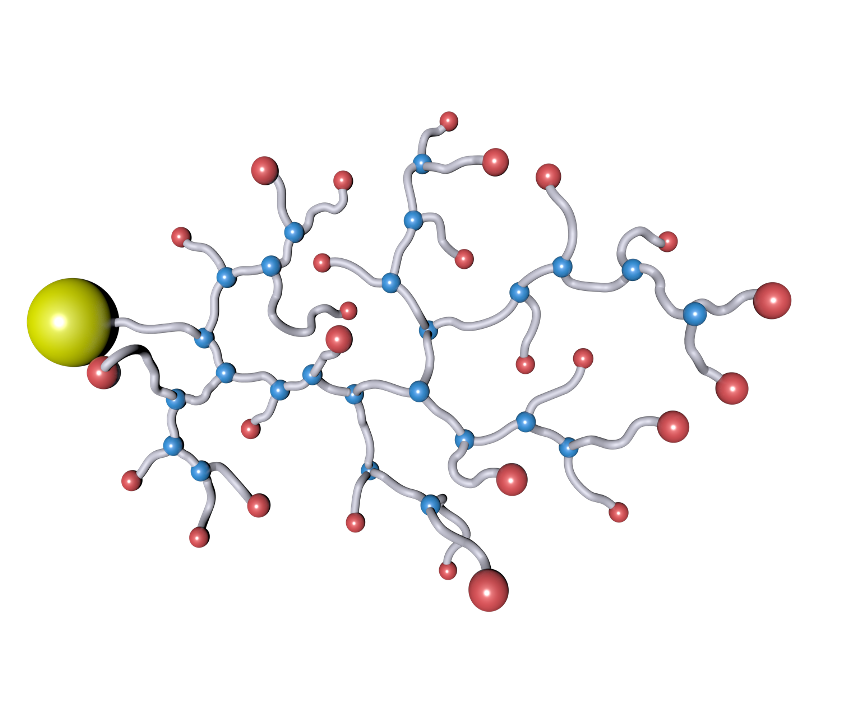Polymers in Medical Care: Improving Clinical Devices and Treatments
Polymers in Medical Care: Improving Clinical Devices and Treatments
Blog Article
Checking Out the Varied Applications and Benefits of Polymers in Different Industries
Polymers, with their diverse range of homes and functionalities, have actually ended up being important in different sectors, each enjoying one-of-a-kind advantages from their application. From enhancing safety and security and efficiency in the automobile industry to transforming medical tools in the medical care market, polymers play an essential duty.
Automotive Sector Applications
Polymers play a pivotal function in improving the efficiency and longevity of numerous components within the automobile sector. One prominent usage of polymers in the automotive industry is in the production of lightweight parts.

Healthcare Market Benefits
In various medical care applications, the advantages of using polymers are widely identified for their diverse series of advantageous residential or commercial properties. Polymers play a vital duty in the healthcare industry as a result of their convenience, biocompatibility, and cost-effectiveness. One of the primary advantages of polymers in healthcare is their ability to be customized to specific needs, such as versatility, longevity, and biodegradability, making them suitable for a broad array of clinical applications.
Polymer-based products are thoroughly used in medical gadgets, such as catheters, implants, prosthetics, and medication distribution systems, because of their biocompatibility and capability to mimic all-natural tissues. These materials can lower the threat of sensitive reactions or beings rejected, improving patient safety and security and outcomes. In addition, polymers are lightweight, making them suitable for wearable medical devices and ensuring person comfort.
Furthermore, polymers make it possible for the development of ingenious therapy methods, such as hydrogels for tissue design and nanocomposites for targeted drug shipment. Their ease of processing and sanitation makes them crucial for maintaining high requirements of hygiene in medical care setups. Overall, the diverse advantages of polymers contribute dramatically to improvements in clinical innovation and client care.
Ecological Advantages of Polymers

Furthermore, polymers can add to power financial savings as a result of his explanation their light-weight nature. In markets such as transportation, light-weight polymer products can help in reducing gas intake and greenhouse gas exhausts. In addition, polymers can enable the growth of energy-efficient items such as insulation materials that boost power conservation in buildings.
Moreover, polymers play a critical role in reducing water air pollution. The usage of polymer-based filtering systems can successfully eliminate contaminants and contaminants from wastewater, safeguarding water sources and ecosystems. Generally, the ecological benefits of polymers make them valuable properties in advertising sustainability and environment-friendly techniques across various industries.
Polymers in Electronics and Technology
Thinking about the increasing demand for cutting-edge and sustainable options in modern-day industries, the combination of sophisticated polymer modern technologies in the world of electronic devices and innovation has actually arised as a pivotal approach for driving performance and performance. Polymers have actually changed the electronics sector by enabling the production of lighter, more flexible, and long lasting electronic tools. From mobile phones to medical gadgets, polymers play a crucial role in improving item design and capability.
One considerable advantage of polymers in electronics is their shielding residential properties, which aid safeguard fragile digital elements from environmental factors and electrical disturbance. In addition, polymers are vital in the development of adaptable screens, wearable innovation, and published electronics, providing countless possibilities for developing wise and interconnected devices.
Moreover, the usage of polymers in electronic product packaging has led to improvements in miniaturization and thermal administration, boosting the overall efficiency and integrity of electronic systems. As innovation remains to evolve, the convenience and flexibility of polymers will undoubtedly drive better advancement in the electronics industry, forming the future of modern technology.
Duty of Polymers in Building and Facilities
The assimilation of innovative polymer materials in construction and facilities pop over here tasks has actually revolutionized the means structures are created and constructed in contemporary times. Polymers use many benefits in the building and construction sector as a result of their flexibility, toughness, and cost-effectiveness. One essential function of polymers in building and construction is their use in finishes and sealers, supplying protection against ecological elements such as wetness, UV radiation, and rust. Furthermore, polymers are made use of in the manufacturing of lightweight and high-strength composite materials, boosting the architectural stability of structures while lowering overall weight.
In addition, polymers play an essential duty in sustainable building and construction techniques by enabling the advancement of energy-efficient structures. Shielding materials made from polymers assist regulate indoor temperatures, decreasing the requirement for home heating and cooling down systems and inevitably decreasing power usage. Moreover, the usage of polymer-based compounds in facilities projects such as bridges and roadways improves their longevity and decreases upkeep expenses. In general, the consolidation of polymers in construction and facilities displays their considerable impact on contemporary design practices.
Verdict
In final thought, polymers play a critical function in different sectors such as auto, health review care, ecological, electronic devices, and construction. From enhancing gas efficiency in lorries to improving clinical tools, polymers provide many advantages.
Report this page